The Early Years: A Punjabi Lad with Dreams
Dev Anand, the man who defined evergreen in the context of Indian cinema, was born Dharam Dev Pishorimal Anand on 26 September 1923 in Shakargarh, British India, now in Pakistan. Coming from a Punjabi family, he was one of three sons, each of whom would later leave an indelible mark on the Indian film industry. Dev Anand moved to Mumbai with a degree in English literature, intent on becoming a performer. His early years saw him taking up a job as a clerk, even as he dreamt of the silver screen.
The Mumbai Saga: Navketan Films and Early Stardom
Not long after stepping into the limelight, Dev Anand, along with his elder brother Chetan Anand, took a significant plunge into film production by establishing Navketan Films in 1949. This venture would go on to become a cornerstone in Indian cinema, producing more than 35 films, many of which achieved Silver and Golden Jubilee status, signifying their long-standing success at the box office.
Dev Anand's meteoric rise as a leading man in Bollywood was punctuated by his first major hit, "Baazi" (बाज़ी) in 1951. Directed by his close friend and equally celebrated filmmaker, Guru Dutt, the film wasn't merely a personal milestone for Dev Anand; it was a watershed moment for Indian cinema as a whole. "Baazi" broke new ground by introducing the noir genre to Bollywood, adding a layer of complexity and sophistication that was hitherto unseen. The film featured elements of crime, romance, and moral ambiguity, setting a precedent for future Indian filmmakers to explore edgier narratives.
Thus, within a span of just a few years, Dev Anand had not only asserted himself as a force to be reckoned with in front of the camera but had also, through Navketan Films, provided a platform for experimental and transformative Indian cinema. The legacy of his early ventures continues to reverberate through the annals of Bollywood history, making him a pioneering figure who could seamlessly merge commercial success with artistic innovation
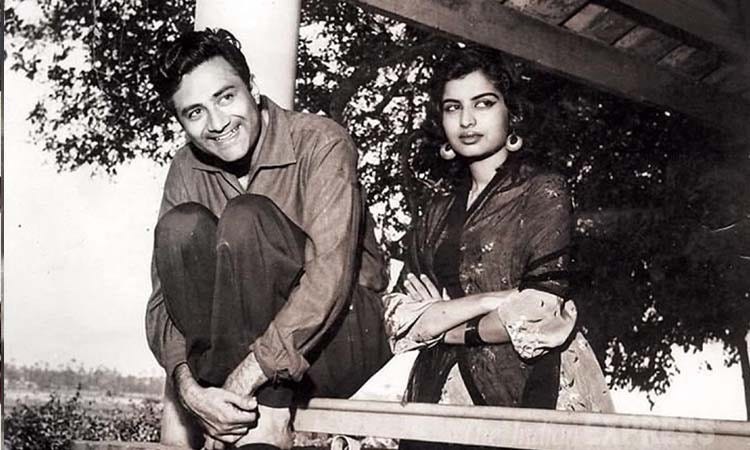
Romances and Lifelong Love
Dev Anand's romantic life was as captivating as his illustrious film career. While his earlier dalliance with co-star Suraiya garnered substantial media attention, it was his spontaneous marriage to Kalpana Kartik, originally known as Mona Singha, that became an everlasting love story. During the filming of "Baazi" (बाज़ी) in 1951, the couple was already enamoured with each other. The depth of their affection became public when they made the unconventional decision to wed. While shooting "Taxi Driver" in 1954, they seized an opportune moment during a brief break in filming; they discreetly slipped away to an ante-room within the studio where they exchanged wedding vows. Their enduring union lasted until Dev Anand's passing in December 2011.
Kalpana Kartik hails from a Punjabi Christian family, originally based in pre-partition Punjab, and continues to radiate vitality and beauty at the age of 921. In contrast to many Bollywood marriages that tend to wither with time, the Anands' bond has been steadfast and unwavering. The couple were blessed with a son, Suneil Anand, born in 1956, as well as a daughter, Devina, further solidifying their family legacy2.
A Legacy Cemented: Films and Awards
Throughout his illustrious career, Dev Anand graced the silver screen in over 100 films, delving into a diverse spectrum of genres and themes, including social issues, romance, and mystery. His iconic roles in cinematic landmarks such as "Guide," "Jewel Thief," and "Hare Rama Hare Krishna" (हरे राम हरे कृष्णा) have forever etched his name into the annals of Indian cinema. For his contributions, he was honoured with several prestigious awards, including the Padma Bhushan and the Dadasaheb Phalke Award. His artistic legacy has been further enriched by his children, who have also achieved their fair share of recognition and accolades in the arts.
In "Hare Rama Hare Krishna," Dev Anand made another indelible contribution to Indian cinema by introducing Zeenat Aman. A statuesque vision of elegance and allure, Aman was barely out of her teens when she burst onto the cinematic landscape. Her undeniable screen presence and enchanting beauty redefined the archetype of the Indian film heroine. She quickly ascended to stardom, capturing the hearts of millions both domestically and internationally, establishing herself as an enduring symbol of grace and sensuality for decades. Her magnetic appeal set a new benchmark in Bollywood, making her a perennial heartthrob and a timeless icon.

An Anecdote to Remember
Embodying his innate sense of spontaneity, charm, and theatricality, Dev Anand's marriage to Kalpana Kartik defied convention from the get-go. Struck by love during the filming of "Baazi" (बाज़ी), he seized the earliest opportunity to cement his relationship with his enamoured co-star. The actor chose an unconventional setting for their nuptials: a shooting break on the set of "Taxi Driver" (टैक्सी ड्राइवर) in 1954. Arrangements had been discreetly made for a marriage registrar to be present in a designated "departmental room". With the ring cleverly hidden in his pocket, the couple stole away during a brief pause for lighting adjustments to secretly exchange vows. Although the newly adorned ring on Kalpana's finger almost disrupted the film's continuity, Dev Anand's signature composure came to the fore. He deftly redirected the cameraman’s focus back to the task at hand. This singularly unique wedding episode encapsulates the captivating enigma that was Dev Anand, a man whose power to surprise persisted both onscreen and off.
The Enchanting Heroines Who Complemented and Enhanced his Screen Presence
Dev Anand's on-screen chemistry was not just a one-man show; it was often magnified by the captivating heroines who complemented him in various films. At the outset, one must mention his wife, Kalpana Kartik, and the sensational Zeenat Aman—both of whom we discuss in depth elsewhere. His early liaison with Suraiya, both professionally in films like "Vidya" (विद्या) and "Jeet" (जीत) and personally, was the talk of the town, and their chemistry is still remembered fondly.
Waheeda Rehman, with whom he delivered evergreen classics like "Guide" (गाइड), offered an ethereal, almost spiritual depth to their screen presence. Sadhana brought sophistication and layers of nuance in movies like "Asli-Naqli" (असली नकली). Madhubala, his co-star in "Kala Pani" (काला पानी), lit up the screen with her electric presence. Asha Parekh infused a sense of youthful vitality in "Jab Pyar Kisi Se Hota Hai" (जब प्यार किसी से होता है), while Sharmila Tagore lent grace and gravitas in "Yeh Gulistan Hamara" (यह गुलिस्तां हमारा). Tina Munim, now Tina Ambani, introduced a modern, chic allure in films like "Man Pasand" (मनपसंद).
Each of these remarkable women was not just a pretty face; they were adept performers who could stand their ground, making them ideal counterparts to Dev Anand's compelling screen personas. The legacy of these exceptional collaborations enriches the tapestry of Dev Anand's storied career, forming the other halves of some of Indian cinema's most enduring on-screen partnerships.
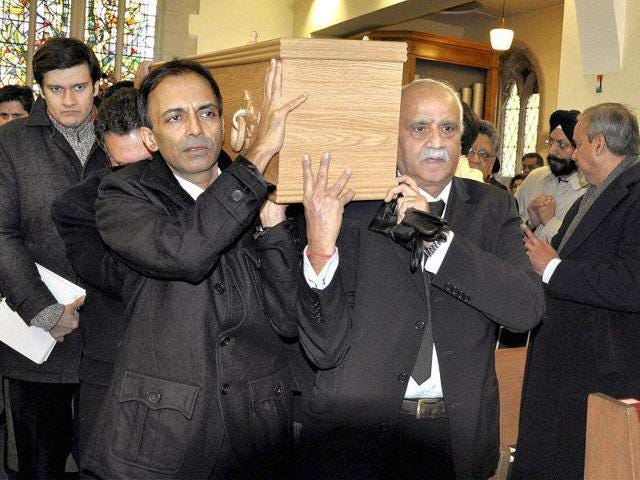
The Quiz and Tribute
Today's edition of "The Hindu" features nine quiz questions on Dev Anand, complete with a visual or pictorial query. Test your knowledge and see how many you can answer, whether you choose to Google the answers or rely on your own expertise.
Spoiler Alert: The Answers to the 9 Quiz Questions
QUESTION 1
Dev Anand made his acting debut in the 1946 film "Hum Ek Hain" (हम एक हैं).
QUESTION 2
The production house started in 1949 by Dev Anand and his elder brother Chetan Anand was named "Navketan Films" (नवकेतन फिल्म्स).
QUESTION 3
Dev Anand made a pact with Guru Dutt. The film in which Guru Dutt got his break as a director and Dev Anand acted was "Baazi" (1951) (बाज़ी).
QUESTION 4
Dev Anand's films "Tere Ghar Ke Samne" (तेरे घर के सामने) and "Kala Pani" (काला पानी) were adapted from A.J. Cronin’s "The Citadel" and "Beyond This Place" respectively.
QUESTION 5
The singing star who was the highest-paid actress of her time and had a romantic relationship with Dev Anand was Suraiya (सुरैया).

QUESTION 6
The legendary singer who had his first Hindi solo for Dev Anand in the film "Ziddi" (1948) (जिद्दी) was Kishore Kumar (किशोर कुमार).
QUESTION 7
Dev Anand's first film as a director that had Waheeda Rahman as the heroine was "Prem Pujari" (प्रेम पुजारी).
QUESTION 8
The political party that Dev Anand launched in the 1970s was named "National Party of India" (नेशनल पार्टी ऑफ इंडिया).
QUESTION 9 (Visual)
The Nobel Laureate who co-produced and wrote the screenplay for the English version of the hit film "Guide" (गाइड) was Pearl S. Buck. The film was based on a novel by R.K. Narayan and was a significant work in Indian cinema, with Dev Anand playing the lead role.
An Everlasting Legacy
While luminaries like Raj Kapoor and Dilip Kumar have their own hallowed spaces in the pantheon of Indian cinema, Dev Anand occupied a singular niche as the eternal youth of Bollywood. His energy and zest for life were infectious, attributes that seemed impervious to the passage of time. Though he is no longer among us, the imprints of his indelible influence reverberate through generations, encapsulating the essence of timeless appeal.
His true legacy isn't just in the film reels or awards but in the hearts and minds of those who admired him. He was more than an actor; he was a philosopher of life, embodying the joie de vivre that encouraged us all to live on our own terms, daringly and passionately. His was a life of audacious choices and untamed dreams, teaching us that age is but a number, and the spirit's vitality knows no bounds.
To celebrate this perennial icon, one song poignantly captures his enduring philosophy: "Main Zindagi Ka Saath Nibhata Chala Gaya" (मैं जिंदगी का साथ निभाता चला गया) from the film "Hum Dono" (हम दोनों). This melody is not merely a tune but an anthem that reverberates with the wisdom of living life freely and fully. It leaves an indelible impression, imbued with nostalgia, bliss, and a poignant reminder of a man who will forever be the epitome of youthful exuberance and intellectual depth. Listening to it, one can almost feel Dev Anand's charismatic presence, urging us all to embrace life's ups and downs with the same unquenchable spirit that he did.
EPILOGUE
Our batchmate from the Rajasthan cadre of the IAS, Dr Govind Sharma, who has since retired, is not just an aficionado of Dev Anand but a true devotee. His admiration for the legendary actor extends beyond casual fandom; he has authored a critically acclaimed book that delves into the life and legacy of this cinematic icon.
Earlier today, I had the pleasure of conversing with him for additional insights. Here's where the surprise kicks in: this very evening, his “Worldwide Fans Association” is orchestrating a lavish event in Mumbai to celebrate and honour Dev Anand’s centenary. And who, you may ask, is gracing the occasion as the Chief Guest? None other than the eternally captivating Zeenat Aman.
I plan to update and enhance this article with exclusive photographs from the gala as soon as they become available. For tonight's event, our friend, Dr Govind Sharma will assume the role of the master of ceremonies.
Kalpana Kartik, wife of Dev Anand, now a radiant 92 years old, spoke to TOI of her memories on his 100th birthday.
https://timesofindia.indiatimes.com/entertainment/hindi/bollywood/news/kalpana-kartik-remembers-dev-anand-on-his-100th-birth-anniversary-he-will-always-be-by-my-side-exclusive/articleshow/103941228.cms?from=mdr
His Juhu Bungalow sold by his children for Rs 350 crore.
https://www.news9live.com/entertainment/dev-anands-juhu-bungalow-sold-for-over-rs-350-crore-to-be-turned-into-22-storey-tower-2292404




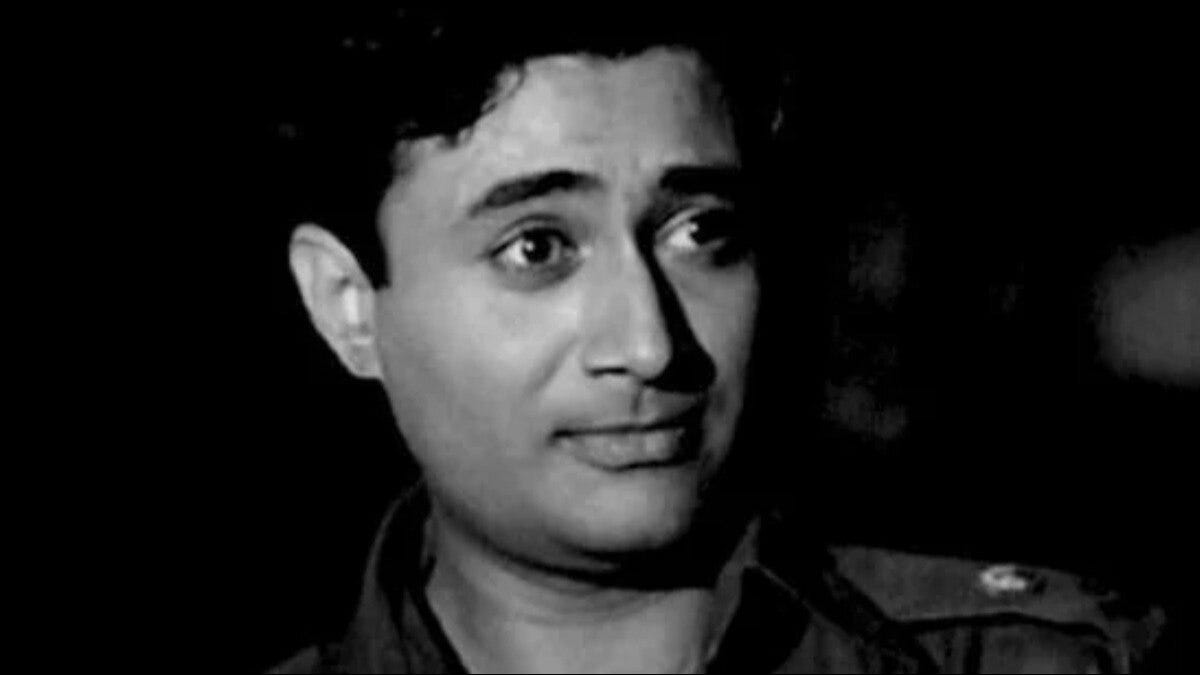
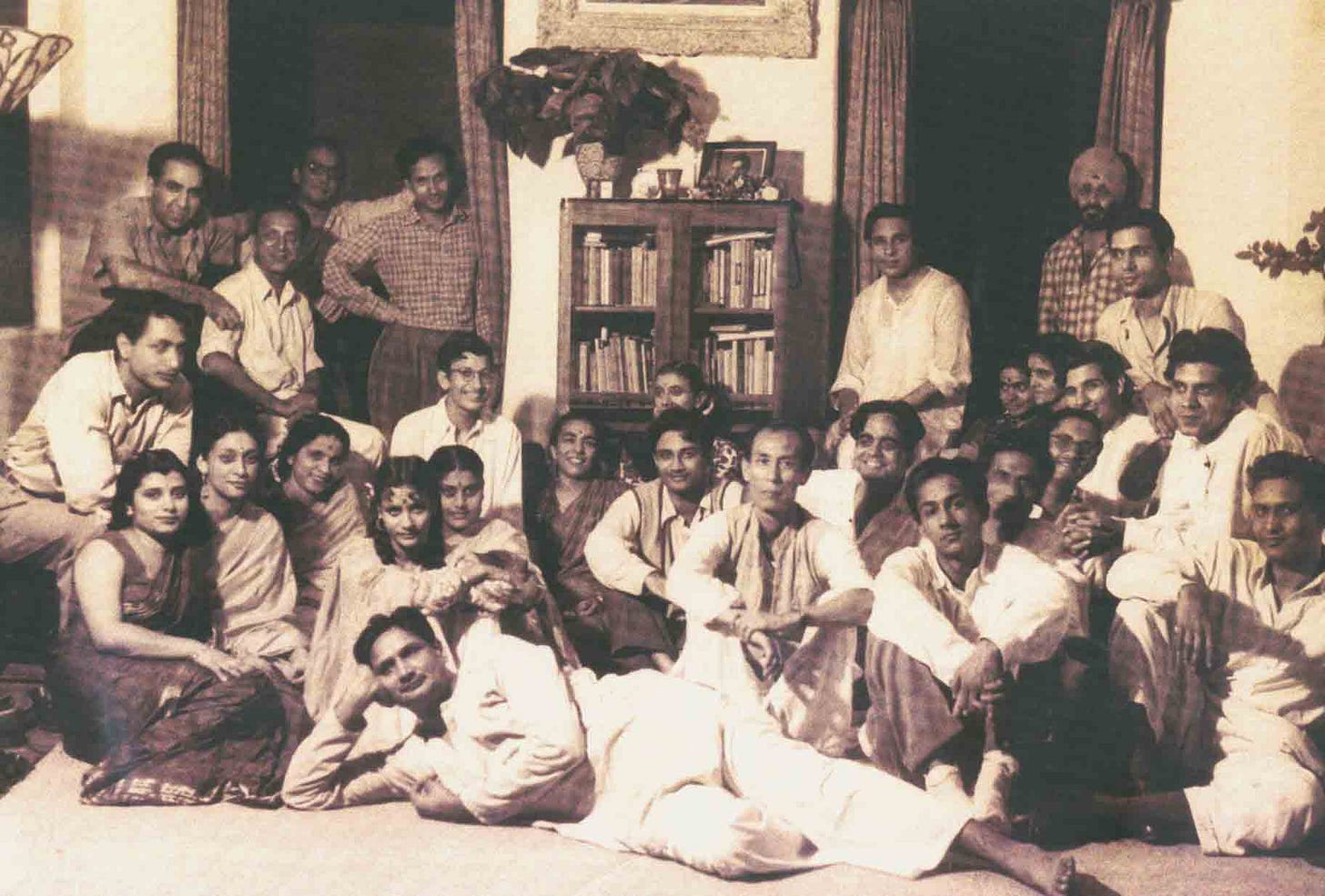


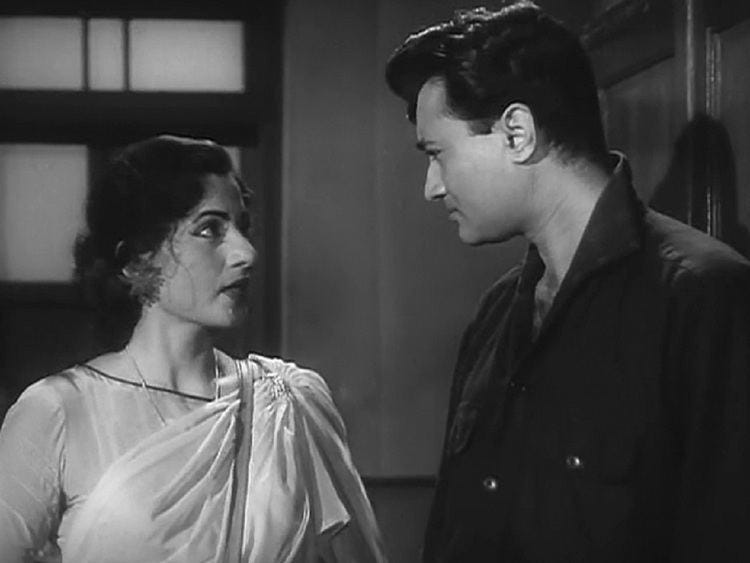
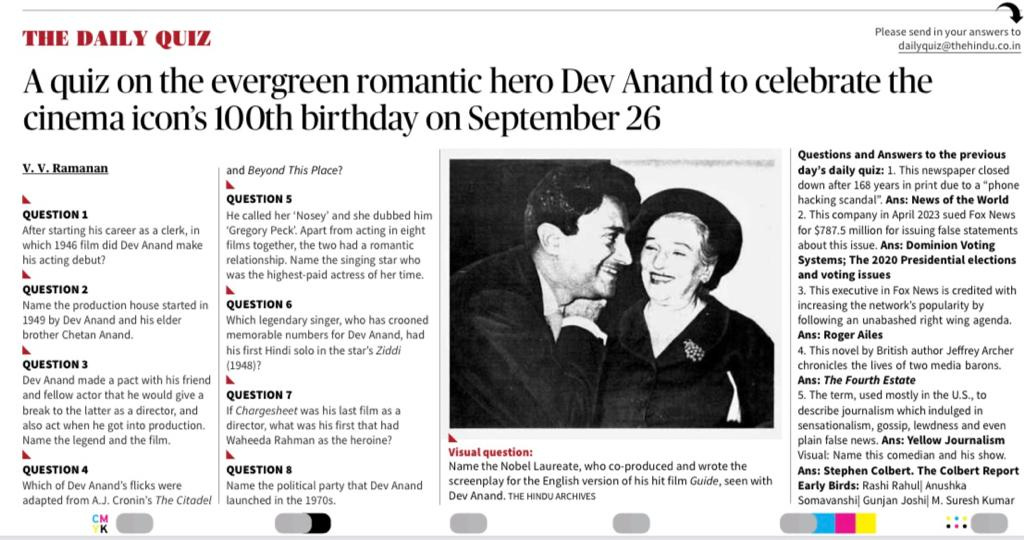

Oh my goodness ! Sir , you made my day . I am going to frame this treasure. Once an aashiq ( my close friend from my town- can’t name him- he became well known) wrote to a girl “ਜੋ ਵੀ ਤੈਨੂੰ ਦੇਖਦਾ ਯਾ ਮਿਲਦਾ ਹੈ, ਤੇਰੇ ਨਾਲ ਰਿਸ਼ਤਾ ਜੋੜ ਲੈਦਾ ਹੈ”
Dev Anand was one those people, you see his movie and become his fan for life.
I had the greatest privilege and meet and speak with him for 27 seconds which I continue to cherish for ever.
Your article reminds good old days . Beautifully written , it gives feelings as reading a novel . Remembering Bir , he was fond of old songs & ghazals .🙏🙏